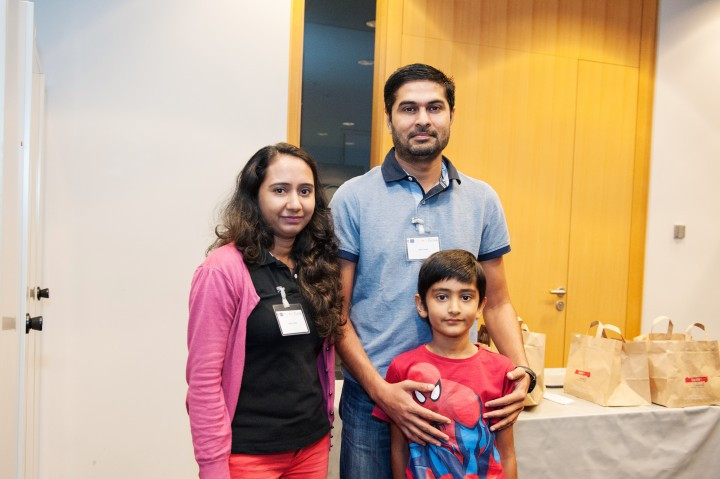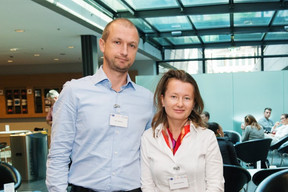The class is organised in English and in Portuguese by the American Chamber of Commerce in Luxembourg (Amcham) and aims to help attendees integrate and understand Luxembourg.
The course, which is available to chamber members and non-members alike, was created by Amcham’s CEO and chairman, Paul Schonenberg, who arrived in Luxembourg in 1992 working for Nato. Schonenberg, who has been head of the chamber for 18 years recalls: “On my journey as an expat in Luxembourg, there were many challenges and obstacles that l had to overcome. I wanted to share that knowledge and experience with those who have just arrived; that became the inspiration for this course”.
Statistics, context
Newcomers Marco Abreu and Clarissa Gomes arrived from Brazil nine months ago and had heard of the Portuguese course through word of mouth. Although they wished they had known about the course as soon as they arrived, they still found the class beneficial. Clarissa said: “Of course there is a great deal of information on the internet, but today we discussed many things which aren’t usually available. We learned about the political structure, the statistics and the social aspect of the country. Something which is pretty important when moving to a new country.”
The courses, which take place at the Luxembourg Chamber of Commerce is targeted at third country nationals because a great deal of existing information is already available to Europeans. Kara Lammi, who arrived from Boston, in the US, two weeks ago, said that a lot of information is usually in French or German and as an Anglophone it is hard to navigate if you don’t speak either of those languages.
Arriving in a new country can be overwhelming. That’s why Beverley Atkinson, one of the course teachers, got involved with the project. “I want people to feel good about living here, I want to give them the tools to make the most of their experience here. What I find most satisfying is that I may have stopped someone from getting themselves into avoidable trouble just by giving them the information they need.”
Understanding Luxembourgers
Practicalities aside, Atkinson recognises that many newcomers may already know a lot of the technical information, but there’s another aspect which is equally as important. “Luxembourgers are in a very unique situation. They live in a place where the capital city is made up of 70% foreigners. Furthermore, they rarely get to speak Luxembourgish, their own language. Therefore, as foreigners arriving into this country, we must understand the dynamic, and the mindset of what it’s like to be a Luxembourger. That is key to integration, something which I emphasise at the beginning of every class.”
With the funding support of the EU’s Asylum, Migration and integration Fund and the Luxembourg Reception and Integration Agency (OLAI), the course takes places 12 times a year. More information about the courses on the Amcham website.

























